Jackson Free Clinic marks two decades of ‘wellness magic’
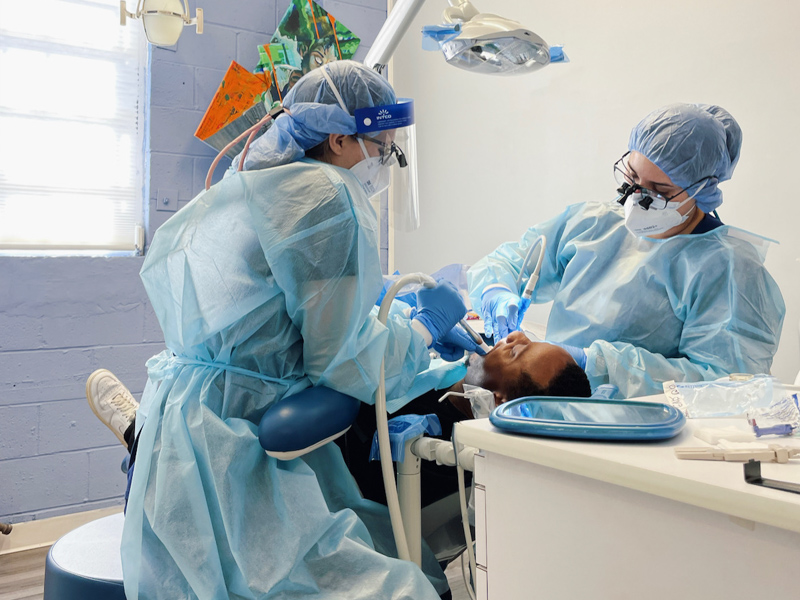
Every morning on his way to medical school, Brittain Heindl learned a lot about the lives of patients before he ever got to class.
He learned it from the anxious faces of many who were just leaving the hospital at UMMC – with no money, no car and no way home.
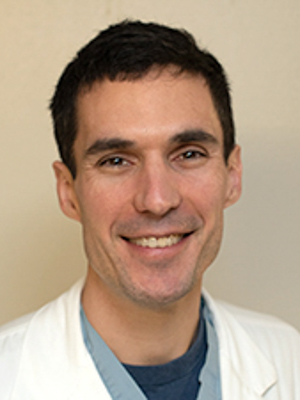
“They were looking for a ride. When you see this, it’s clear how much poverty there is, and it’s right there in areas that back right up to the Medical Center,” said Dr. Brittain Heindl, now a cardiologist in Birmingham. “There are very few avenues for doing anything about it.”
He found one, though, and for exactly two decades now, it has given hundreds of students a chance to get up every Saturday morning and help change the world, or at least the corner of it served by the Jackson Free Clinic.
A celebration of its mission, bringing free health care services to people who otherwise couldn’t afford them, starts at 6:30 p.m. Friday at the Mississippi Civil Rights Museum in Jackson: the Jackson Free Clinic 20th Anniversary Fundraising Gala.
For more information about the free clinic or gala, visit www.jacksonfreeclinic.org/gala.
The creation of a doctor born in Nigeria, educated in Africa, Georgia and California, and invested professionally and personally in Mississippi, the physician-supervised clinic opened in 2002, when it, like many of its patients, didn’t have a home of its own.
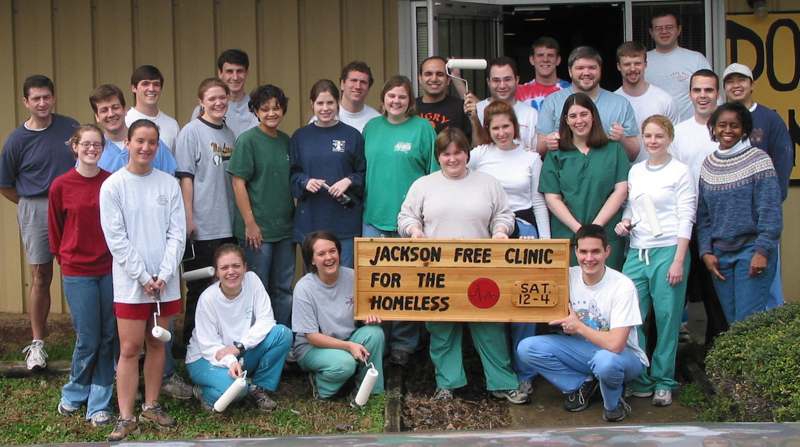
It has filled a need not only for the people cared for there, but also for those who cared for them, including Dr. Katie Taylor of Jackson, who was present when the clinic opened its doors for the first time.
“Volunteering there was a way to keep in touch with why I went to medical school in the first place,” said Taylor, now Deputy State Epidemiologist at the Mississippi State Department of Health.
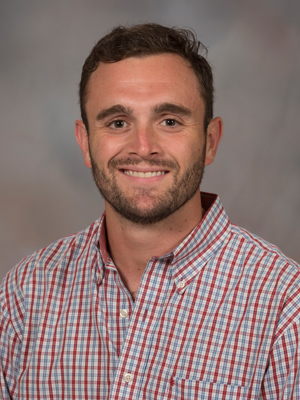
And it’s true for JoJo Dodd of Picayune, a fourth-year medical student, who is there now: “Working at the Jackson Free Clinic,” he said, “has been the most meaningful thing I’ve done in medical school.”
‘In the medical care gap’
During the gala Friday, featured speakers will acknowledge the clinic’s prominent place in the lives of patients and students alike. Among those at the podium will be Glenn Boyce, chancellor of the University of Mississippi, and Dr. LouAnn Woodward, vice chancellor for health affairs and dean of the School of Medicine at UMMC.
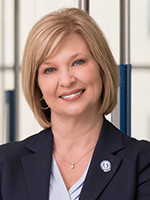
“For the last two decades, the Jackson Free Clinic has stood in the medical care gap for hundreds of patients in need of treatment,” Woodward said. “Their work benefits both patients, who receive medical care, and students, who learn the art and science of serving others.
“I congratulate them for making such a remarkable impact over the last 20 years, and I anticipate that the symbiotic relationship between patient and caregiver through this volunteer service will continue for years to come.”
For their relationship with the free clinic, for their commitment and for ensuring that their residents have been active there, two Medical Center leaders will be honored during the ceremony: Dr. Shannon Pittman, chair and professor of family medicine, and Dr. Calvin Thigpen, associate professor of medicine-internal medicine. Luis Espinoza of the Mississippi Immigrants Rights Alliance, will be recognized, too, for his organization’s partnership with JFC.
“The awards for Dr. Pittman and Dr. Thigpen are for them personally and for their departments,” said Dodd, the current chair and COO of the free clinic.
“We are proud that we are a student-run and student-owned clinic, but without the support of the Medical Center and support of internal medicine and family medicine, the students at the Jackson Free Clinic would not have a whole lot to run.”
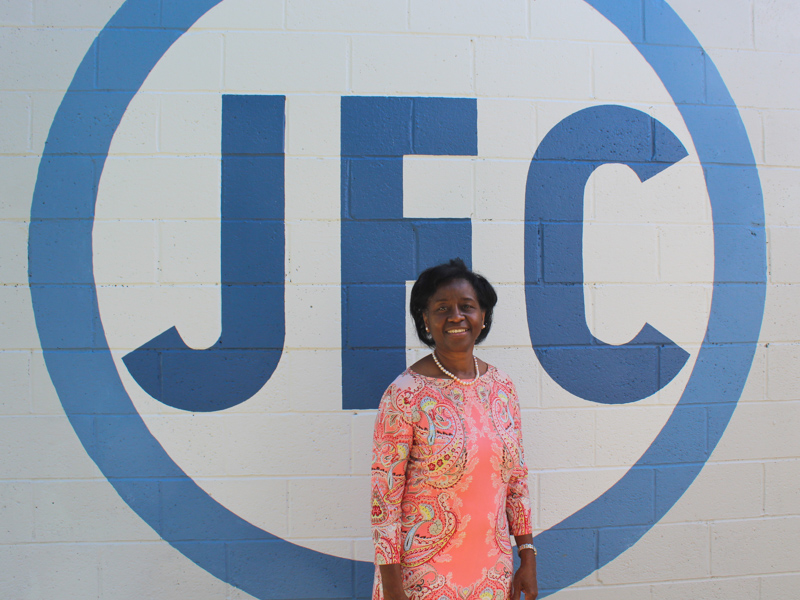
In the beginning, it ran because of Dr. Joyce Olutade, its founder and first medical director, whose professional and personal education led her to America from Calabar in Nigeria, where, as a young girl, she saw civil war deprive people of their lives and their homes.
These images stayed with her through her years at Emory University and Morehouse College in Atlanta. Certainly they were with her when she was on leave from UMMC during her fellowship at the University of California San Diego; there, in 2000, she got her first sight of a student-run clinic for patients who, in many cases, didn’t have a doctor or a home.
“That’s where I learned the nuts-and-bolts of getting such a clinic up and running,” said Olutade, assistant professor of family medicine at UMMC. “That was my fellowship project.”
That project was the Jackson Free Clinic for the Homeless – a qualification that was soon dropped because, as Taylor puts it: “If people came in and needed us, we helped.”
‘It was worth it’
Those were the people Olutade had always wanted to serve – the underserved; many held down jobs but couldn’t afford insurance. With the blessing of Dr. Lessa Phillips, UMMC chair of family medicine at the time, attending to these patients became possible when a grant provided $10,000 in seed money to establish the non-profit clinic in Jackson. But it took a while before anyone could get their hands on the funds.
“We had to depend on a lot of donations of equipment at first,” Olutade said. “The first location was at Voice of Calvary Clinic on Martin Luther King Jr. Drive. They gave us some space there for free and we worked there on weekends. They had the beds. We brought the stethoscopes.”
After a year, Olutade and her students were able to move into their own place, a donated building on the same street, at 925 MLK Jr. Drive. “But we needed help,” she said. “So a lot of donations came from the students’ parents. And the lawyer who really helped us was Ro Taylor, the father of one of the students.”
The student’s name: Katie Taylor.
“During my M1 year, when I first learned about the free clinic, they were working on getting 501c3 status and trying to find an attorney to assist them,” Taylor said. “I mentioned that to my father and he helped guide the clinic leadership through that process as well as other things.
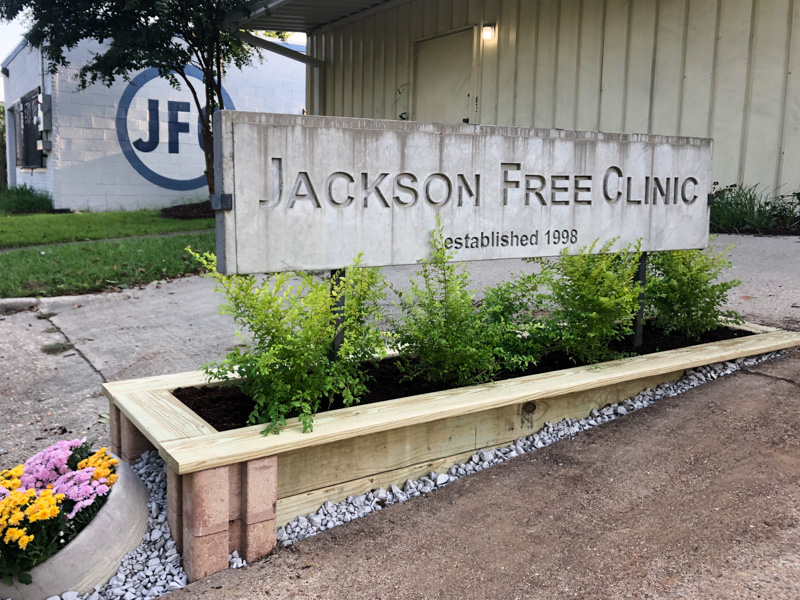
“It was also a contact of his who was responsible for donating the use of a building to the clinic.”
Rowan H. “Ro” Taylor Jr. took care of everything, Olutade said. “All I had to do was sign the papers. I will always remember Mr. Ro Taylor.”
With help from the community project-minded members of the SAE fraternity at Mississippi State University who cleaned up the building, the medical students also went to work painting the walls and more, Katie Taylor said.
“I spent my Saturdays there pretty much through medical school,” said Taylor, who graduated in 2005. “It took a good bit of effort to volunteer there and go to school, too, and I’m glad I did it.
“We did have help, especially from the Department of Family Medicine. Some physicians and residents would come in and supervise.”
Their presence was required, no less so when it came to writing prescriptions, particularly those not on the four-dollar list of large retail pharmacies. Under the physicians’ supervision, students would give them to patients to be filled at certain small, usually locally-owned, pharmacies, such as Brent’s Drugs in Fondren. While the clinic paid for the medications, pharmacies offered a discount or at-cost arrangement, Taylor said.
“It was interesting to see the way the community would help out, and we needed it. We didn’t have much money at the time. And we didn’t always have a bunch of patients.
“It started small, but it was worth it when it was small, too.” Several years after she graduated, it was getting a lot bigger.
‘The immeasurable things’
By the time Heindl, Class of 2012, was winding up his last year or so in medical school, the clinic clearly needed more space – that is, it needed to take advantage of what it already had.
“We were using only half of the building,” Heindl said. The students found an architect, got an estimate on the cost rehabbing the place and began asking for donations.
“I guess we were pretty naïve,” Heindl said. “We were calling around and getting only small donations or a lot of ‘no’s.’
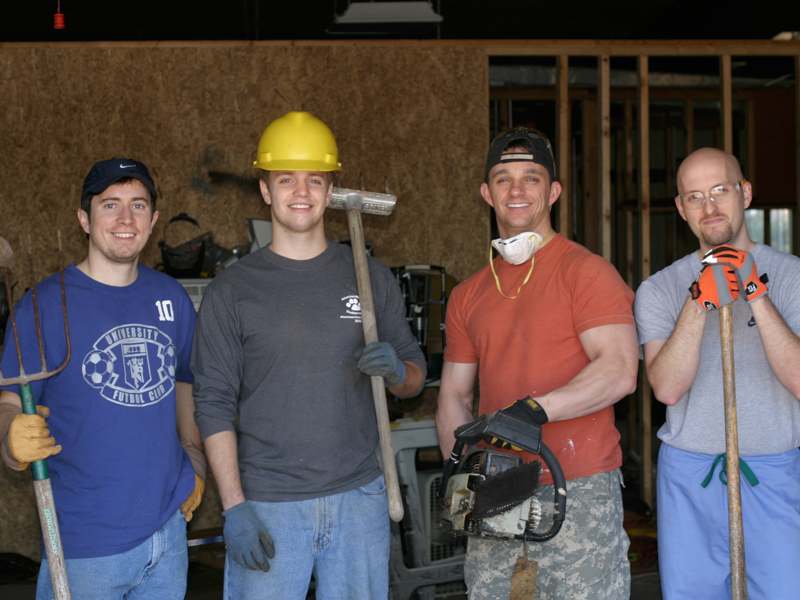
“One day, Bobby Tullos just handed us a bunch of hammers. We worked all day hammering on walls, clearing out space.”
Now a pulmonologist and critical care specialist in Gulfport, Dr. Bobby Tullos began volunteering at the clinic as an M1 in 2008 because, he said, “with medicine, we can improve things we can measure – blood sugar, blood pressure, heart rate; but it’s the immeasurable things that often give you the greatest satisfaction – such as knowing you can help improve someone’s life.”
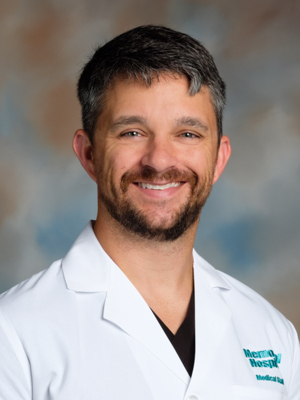
As a member of the clinic’s board, he and other students wanted to set up the clinic for growth immediately and for the future. “That’s why we started a capital campaign,” he said.
The Community Foundation of Mississippi helped the students establish a donation fund. When the Medical Center came up with $150,000, “that really put a lot of wind in our sails,” Tullos said.
A $150,000 match poured in from a major hospital corporation. A variety of foundations came through as well, including the Bower Foundation. Soon, the clinic volunteers had more than $400,000 to work with, and they made the most of it.
“Until that time, only medical students worked in the clinic,” Tullos said. “There were a few pieces missing. With the added space and patient rooms, we partnered with students in the School of Health Related Professions and the School of Dentistry.
“Occupational therapist and physical therapists began coming to the clinic. Dental chairs were installed. We were on the way to becoming a full-service clinic for those who needed it the most.”
The outpouring of funds from the Medical Center was made possible by leaders who had the clinic’s interests at heart, including Dr. James Keeton, vice chancellor for health affairs at the time, and Woodward, who was associate vice chancellor. Heindl credits Dr. Jerry Clark for getting them very interested.
“We students did a lot of legwork, but I really think Dr. Clark raised a lot of that money,” Heindl said.
Back then, Clark considered the clinic “the best-kept secret in Mississippi.” At the time, and for many years, he was chief student affairs officer and associate dean for student affairs in the School of Medicine; nobody knew medical students better than Clark.
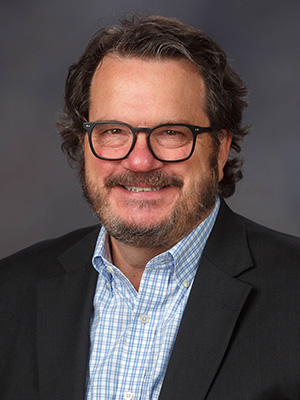
“The clinic is wonderful on so many levels,” said Clark, who is now the student liaison for student affairs in the School of Medicine. “So when Brittain Heindl called, I hustled. The money we all raised sort of put them in a whole new orbit, and I was glad to help with that.
“The free clinic provides care and helps patients get well. But I was surprised to learn how it helps students get well, too. After working so hard studying all week, they get to go somewhere every Saturday, 10 a.m. to 4 p.m., and help take care of people. For them, it’s just wellness magic.”
‘The humanity of these patients’
For Dodd, wellness means being able to walk through clinic every Saturday and have patients call out to him by name. Like “Cheers” with exam stools instead of bar stools.
“It’s nice to know your neighbors,” Dodd said, “and they know you in a way that is meaningful. They trust that you are there to help.”
From its beginning, the clinic’s founder wanted it to help students, too. “I wanted them to be able to hear the stories of the marginalized and underserved patients and to learn to treat them with dignity,” Olutade said. “I wanted them to see the humanity of these patients.
“Also, I wanted them to see and understand how a medical practice runs. Medical care is costly. If you don’t have insurance, you may not get any care. I wanted students to learn why patients may not take their medicine. Why they don’t always do what you ask them to do.
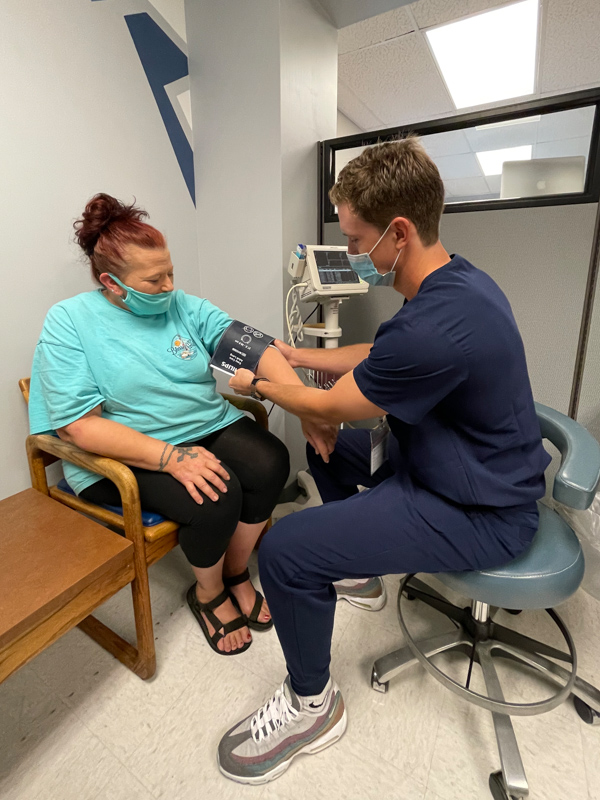
“And I wanted students to learn how to work together. To get the care to the patients who need it. Medical students were the largest group at UMMC, but my hope was that other students would join them.”
That has happened. Students from most of the UMMC schools are part of the free clinic now. Around 1,000 worked in or for the clinic in 2021. Medical students make up more than half, with about 16 percent coming from the dental school. But trainees from all other UMMC campus schools have also contributed – graduate studies, health related professions, nursing, pharmacy, and population health.
Today, patients can tap into medical specialty services as well, at certain times of the month or year: psychiatry, dermatology, radiology, gynecology, ultrasound.
Pre-med students are also volunteering at the clinic, primarily as members of the JFC Health Ambassador Program, which has extended the clinic’s education mission to college students, with chapters at Ole Miss, Alcorn State, Jackson State, Mississippi College, Mississippi State, Tougaloo College and the University of Southern Mississippi.
At least one of Olutade’s hopes has not come to pass, though: her desire to see widespread teamwork among clinics similar to the one she started. “We haven’t fully realized that,” she said.
Still, the students now running the Jackson Free Clinic have multiplied its impact as if it were several clinics in one. “They’re not just waiting for people to come to us; the students are going to them,” Olutade said.
Working with advocacy groups, the volunteers administered COVID vaccine to more than 1,600 Hispanic Mississippians in 2021, while screening 650 during 43 events.
“They’re taking care of people who don’t speak English, offering OB-GYN care, expanding dental care, educating patients,” Tullos said.
“They’re on the front lines of giving the COVID vaccine, and doing all that and more for those patients who have nothing, but who know they do have that clinic. Seeing people willing to deliver that level of care without any kind of monetary incentive is inspiring.”
Today, Olutade is no longer the medical director; that is now the job of Dr. Thais Tonore Walden of Jackson, a former professor of family medicine at UMMC. But Olutade is still there, as an advisor and volunteer.
Like Tullos, she is moved by the students, and also by the students’ parents, the UMMC faculty and department leaders, physicians outside the Medical Center and others who have joined in.
“I am very thankful that this project has taken root and grown because of the good hearts of the people of Mississippi,” Olutade said. “Without the whole community of generous hearts, this would not have been possible.”
The Jackson Free Clinic 20th Anniversary Fundraising Gala set for Friday will include a silent auction to raise money for the clinic. For more information about the free clinic or gala, visit www.jacksonfreeclinic.org/gala or contact JoJo Dodd at jmdodd@umc.edu.


